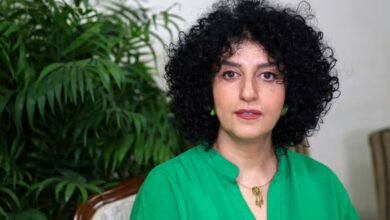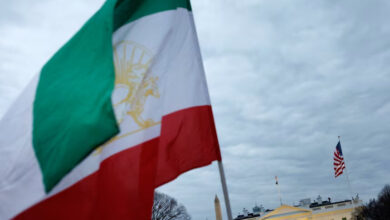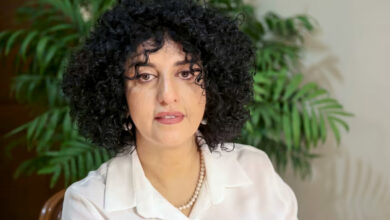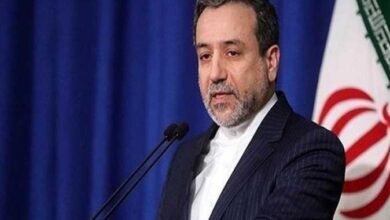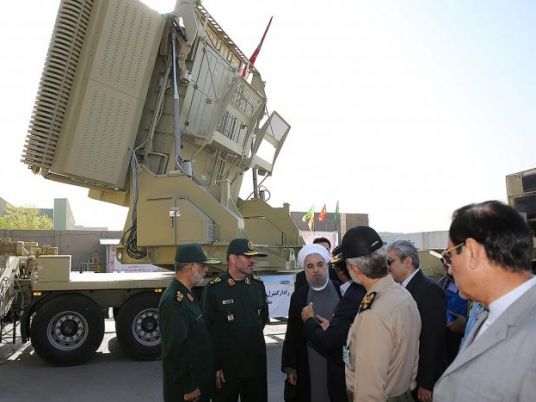
The Russian military said on Monday its aircraft operating from an Iranian air base to conduct strikes in Syria had completed their tasks, but left open the possibility of using the Hamadan base again if circumstances warranted.
Iran's Foreign Ministry said Russia had stopped using the base for strikes in Syria, bringing an abrupt halt to an unprecedented deployment that was criticized both by the White House and by some Iranian lawmakers.
"Russian military aircraft that took part in the operation of conducting air strikes from Iran's Hamadan air base on terrorist targets in Syria have successfully completed all tasks," a Russian Defence Ministry spokesman, Major-General Igor Konashenkov, said in a statement.
"Further use of the Hamadan air base in the Islamic Republic of Iran by the Russian Aerospace Forces will be carried out on the basis of mutual agreements to fight terrorism and depending on the prevailing circumstances in Syria," Konashenkov said.
Last week, long-range Russian Tupolev-22M3 bombers and Sukhoi-34 fighter bombers used Nojeh air base, near the city of Hamadan, in north-west Iran to launch air strikes against armed groups in Syria.
It was the first time a foreign power had used an Iranian base since World War Two. Russia and Iran are both providing crucial military support to President Bashar al-Assad against rebels and jihadi fighters in Syria's five-year-old conflict.
Some Iranian lawmakers called the move a breach of Iran's constitution which forbids "the establishment of any kind of foreign military base in Iran, even for peaceful purposes".
Iranian Defence Minister Hossein Dehghan dismissed that criticism but also chided Moscow for publicizing the move, describing it as showing off and a "betrayal of trust."
"We have not given any military base to the Russians and they are not here to stay," Dehghan was quoted as saying by the Fars news agency late on Sunday.
He said there was "no written agreement" between the two countries and the "operational cooperation" was temporary and limited to refueling.
The US State Department, which last week called the move "unfortunate but not surprising" and said it was studying if it violated a UN Security Council resolution that bars supply, sale and transfer of combat aircraft to Iran, said that it was unclear if Moscow's use of the base had "definitively stopped."
Abrupt end
On Monday, Iran's Foreign Ministry said Russia's use of the base had ended.
"Russia has no base in Iran and is not stationed here. They did this [operation] and it is finished for now," Bahram Qasemi was quoted as saying by Tasnim news agency.
Iran's defense minister had said last week that Russia would be permitted to use the Nojeh base "for as long as they need".
While noting that Iran has long supported Assad, a US official said Tehran may not have wanted its involvement to be so public ahead of the 2017 Iranian presidential election.
"The Iranians don’t mind helping out quietly. They just don’t want the world to know that they are contributing to the deaths of thousands of Syrian civilians," said the US official, who spoke on condition of anonymity.
"It’s their elections … Everybody gets squeamish around election time," he added.
Relations between Iran and Russia, long cordial, appeared to reach a new level last September when Russian President Vladimir Putin ordered military intervention in Syria in support of Assad.
After some delay, Russia supplied Iran with its S-300 missile air defense system, evidence of a growing partnership that is testing US influence in the Middle East.
Dehghan said that to make up for the delay, Russia had suggested providing Iran with its advanced S-400, but that Tehran was not interested as it is working to advance its own home-made defense system.
Iran unveiled its new missile defense system, Bavar 373, on Monday, a system designed to intercept cruise missiles, drones, combat aircraft and ballistic missiles.
Iran's defense minister also said Tehran has shown interest in buying Russian Sukhoi Su-30 fighter jets and Moscow's reply "has not been negative so far."
The United States has said it would use its veto power in the UN Security Council to block the possible sales of the fighter jets to Iran.

